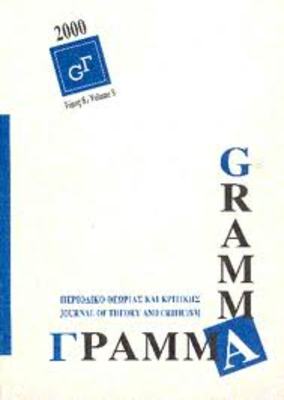Bridging poetic and cold war divides in Lyn Hejinian ’s Oxota and Vikram Seth ’s The golden gate
Part of : Γράμμα : περιοδικό θεωρίας και κριτικής ; Vol.16, No.1, 2008, pages 85-100
Issue:
Pages:
85-100
Section Title:
Writing war
Author:
Abstract:
Lyn Hejinian's Oxota: A Short Russian Novel (1991) and Vikram Seth's The Golden Gate (1986) are works from two very different poetic camps— Language poetry and New Formalism—that both draw on Russia's national poet Alexander Pushkin's novel in verse Eugene Onegin (1833) for inspiration and so offer a unique opportunity for reconsidering poetic and Cold War divides in U.S. poetry. These two poems can be read as attempts to transcend the Cold War binaries of the 1980s at both formal and thematic levels. Each poem employs its connection with Eugene Onegin, including the genre-crossing elements of that work, to create a symbolic space in which divides are bridged between East and West. The poetics of boundary crossing in both works thus belies the apparently radical formal difference between the two and demonstrates the multiple ways in which the crises and euphoria of the late Cold War period have promoted artistic expression and experimentation as part of an attempt to interpret the conflict and flux that marked the last decades of the previous century. At the same time, my comparison of Oxota and The Golden Gate demonstrates the need for criticism to bridge the conflicts in contemporary U.S. poetry and so to parallel the formal, thematic, political, and geographic boundary crossing of these two novels in verse.
Subject:
Subject (LC):
Notes:
Revisiting crisis / reflecting on conflict: American literary interpretations from World War II to Ground Zero.Περιέχει βιβλιογραφία




